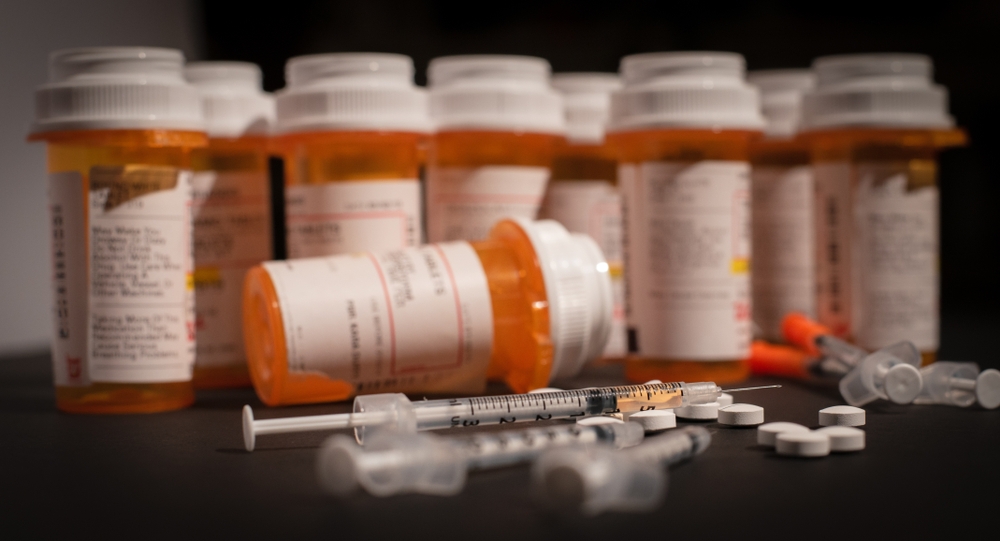
Can you be arrested for taking a prescription drug—even if you have a valid medical reason?
It might surprise you, but the answer is yes. In New Jersey, prescription drug misuse is a serious offense. Many individuals in Burlington County and throughout South Jersey find themselves facing unexpected criminal charges for actions they didn’t realize were illegal.
At Attorneys Hartman, Chartered, we understand how quickly a misunderstanding can escalate into an arrest. Whether you’ve been charged with unlawfully possessing a prescription medication, sharing pills with a friend, or driving while impaired by something prescribed to you, we’re here to provide clarity during a confusing and stressful time.
In this blog, we’ll explain what counts as prescription drug misuse, the legal penalties under New Jersey law, and what you can do if you’ve been accused. Our goal is to give you the knowledge you need to protect your rights and move forward.
What Is Prescription Drug Misuse in New Jersey?
Prescription drug misuse refers to using, possessing, or sharing prescription medications in ways that are not legally authorized. This includes situations where the drug was originally prescribed to someone else or used for what might feel like a legitimate medical reason.
Common examples include:
- Carrying or taking medication prescribed to someone else.
- Sharing pills with a friend or family member.
- Holding more pills than you were prescribed.
- Altering or forging prescriptions.
- Driving while impaired by a legal medication.
These situations may not sound like crimes at first glance, but under New Jersey’s Controlled Dangerous Substances (CDS) laws, they can lead to criminal charges.
What the Law Says: N.J.S.A. 2C:35-10.5
Under New Jersey Statute 2C:35-10.5, it is illegal to possess, distribute, or attempt to obtain prescription legend drugs—medications that cannot be sold legally without a valid prescription—unless you are authorized to do so. The law outlines four key types of offenses:
1. Unlawful Possession of Prescription Drugs
Four or fewer pills without a prescription:
- Offense: Disorderly persons offense
- Penalties: Up to 6 months in jail and fines up to $1,000
Five or more pills without a prescription:
- Offense: Fourth-degree crime
- Penalties: Up to 18 months in prison and fines up to $10,000
2. Intent to Distribute
Four or fewer pills for payment or gain:
- Offense: Fourth-degree crime
- Penalties: Same as above
Between 5 and 99 units:
- Offense: Third-degree crime
- Penalties: 3 to 5 years in prison and fines up to $200,000
100 or more units:
- Offense: Second-degree crime
- Penalties: 5 to 10 years in prison and fines up to $300,000
3. Fraudulent Acquisition
Using deception, forgery, or false identities to obtain prescriptions:
- Offense: Fourth-degree crime
- Penalties: Up to 18 months in prison and fines up to $10,000
4. Unauthorized Use of a Legal Prescription
Taking a prescription drug not written for you, even if it is for the same condition:
- Offense: Disorderly persons offense
- Penalties: Up to 6 months in jail and a fine of $1,000
Important: Even if you never intended to misuse the medication, simply having someone else’s pills in your possession can result in criminal charges.
Can You Be Charged Even with a Prescription?
Yes, but context matters.
Even if you were prescribed the medication, you can still face charges under certain conditions. For example:
- Driving while impaired by your prescribed medication, such as painkillers, sleep aids, or anti-anxiety drugs, may result in a DUI or DUID charge if law enforcement believes your ability to drive was compromised.
- Carrying expired medication or transporting pills in an unmarked container may raise suspicion of unlawful possession.
- Sharing pills, even with good intentions, can be prosecuted as unlawful distribution.
The good news is that a valid prescription may serve as a strong defense, but only when presented properly in the legal process.
Potential Defenses in Prescription Drug Cases
Each case is different, and the best legal defense depends on the facts. That being said, some common defense strategies include:
- Valid prescription defense: Demonstrating that the medication was lawfully prescribed and in your possession for medical reasons.
- Lack of intent: Showing that you did not intend to distribute or misuse the medication.
- Unlawful search: Challenging the legality of how law enforcement obtained the evidence.
- Mistaken identity or possession: Proving that the drugs were not yours or that you were unaware they were in your possession.
A strong defense begins with understanding the full facts of your situation, your medical history, and the context of your arrest. That's where a seasoned criminal defense attorney becomes essential.
What to Do If You’re Facing Prescription Drug Charges in South Jersey
If you've been arrested or are under investigation for prescription drug misuse, here are the steps you should take right away:
- Do not speak to law enforcement without an attorney present.
- Avoid posting anything about your case on social media.
- Gather your prescription records and medical documentation.
- Contact a local criminal defense lawyer as soon as possible.
Acting quickly can significantly improve your chances of resolving the issue before it causes long-term harm.
You're Not Alone. We’re Here to Help.
At Attorneys Hartman, Chartered, we’ve helped many individuals across Burlington County and South Jersey navigate prescription drug charges with clarity and respect. These situations are often rooted in misunderstanding, not criminal intent, and you deserve an attorney who takes the time to listen and advocate for you.
We offer confidential consultations with no pressure to commit. Our goal is to help you understand your options so you can make informed decisions about your future. If you’ve been charged—or believe you may be—reach out to get the support you need.
Disclaimer: This blog is for informational purposes only and does not constitute legal advice. Every case is unique, and legal outcomes depend on specific facts and circumstances. For advice specific to your situation, please consult a licensed New Jersey criminal defense attorney.
